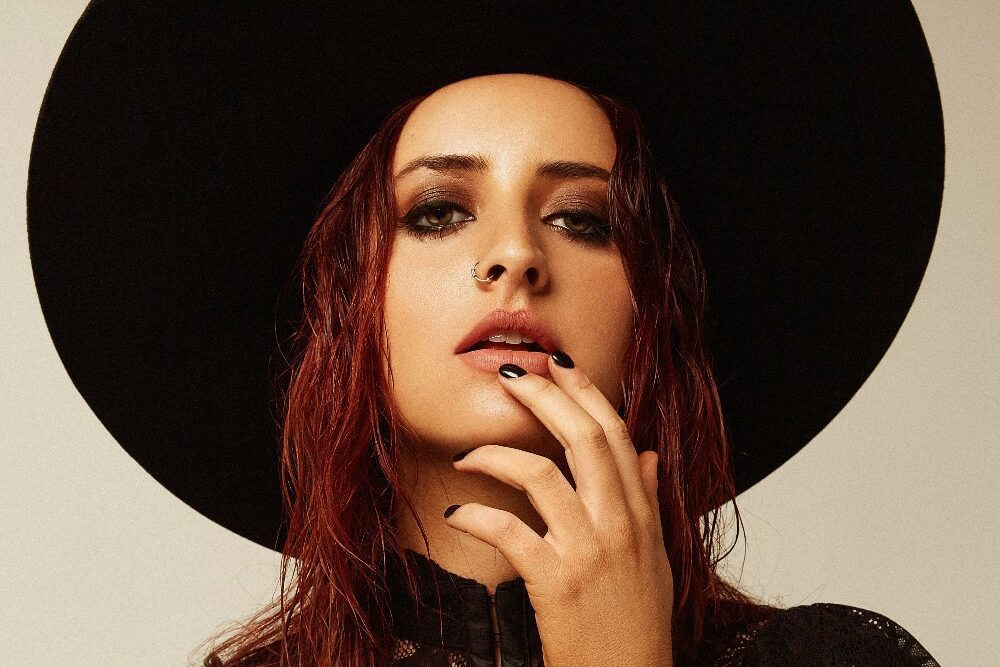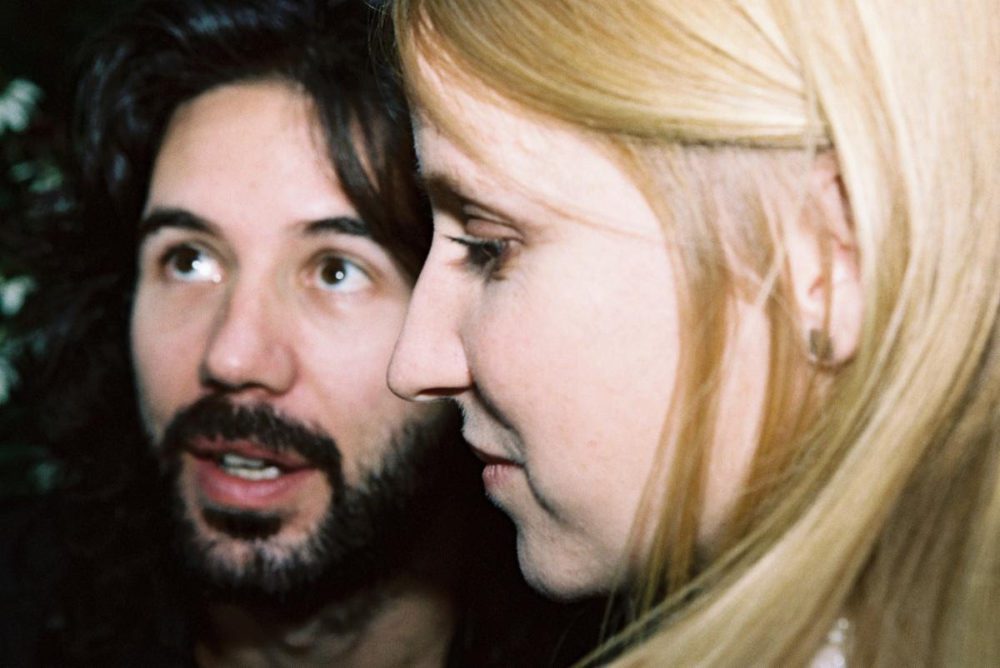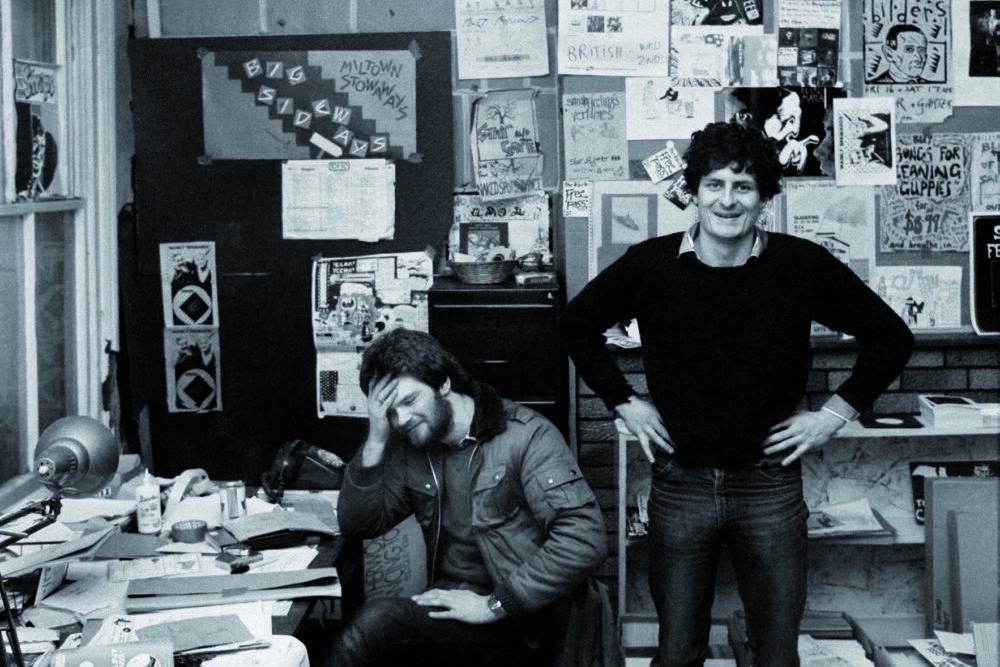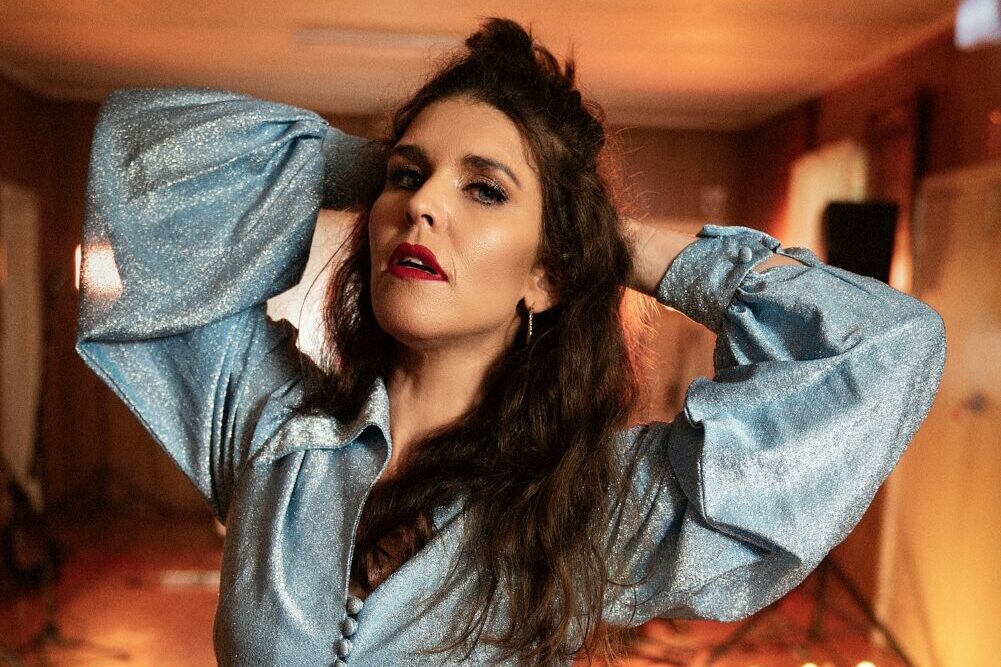
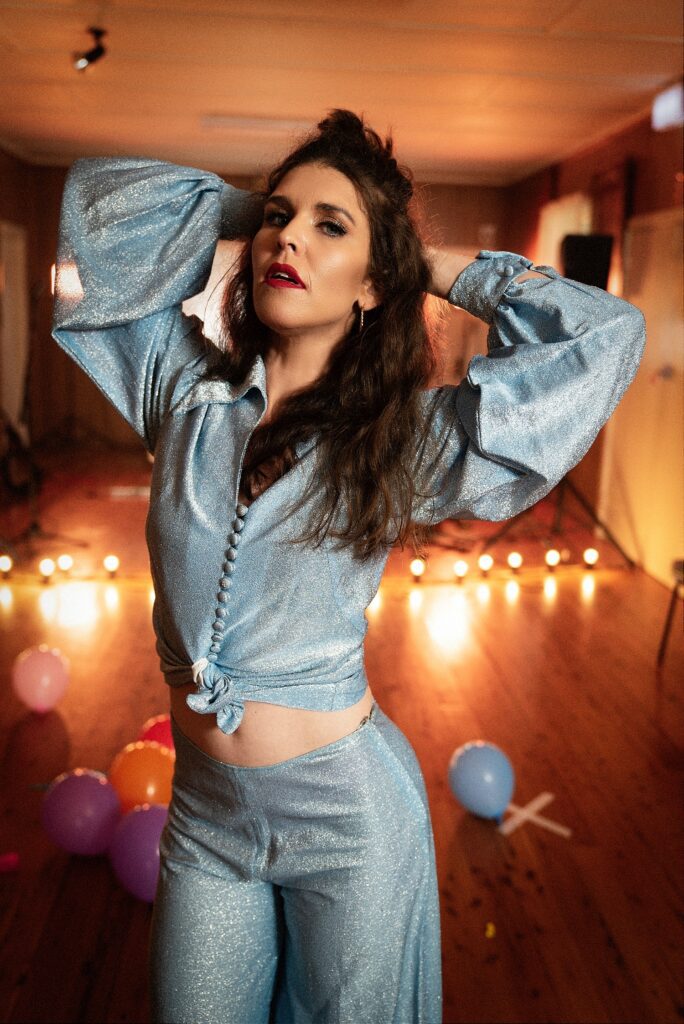
It’s been a rollicking ride for singer-songwriter Fanny Lumsden over the last couple of years. The crushing experience of cancelled tours was ameliorated by sweeping up an array of industry awards, including ARIA Country Album of the Year for her third album Fallow and five CMAA (Country Music Association Australia) Golden Guitars. The album is an expansive, romantic, evocative canvas upon which guitars, strings and brass instrumental arrangements seem to organically rise from the earth and weave lush portraits from sun, dust, water, emotion and sound.
For her fans, and soon-to-be fans, who have only been able to hear Fallow through headphones and speakers, a comprehensive live tour – the Country Halls Tour – is the much anticipated, and well-delayed, experience Lumsden and her band, The Thrillseekers, have been readying for.
The title track sashays in on romantic, spare piano. It is, as intended, beautiful and over all too soon. Lumsden’s gentle, yielding voice rises and dips simultaneously with the sympathetic strings. “Our hearts, deep in the fallow,” she repeats. “Where did you go? We put our trust in the ebb and flow,” and the words hit home: what else could we do in the last couple of years but surrender to nature and circumstances?
Harmonising alongside her, his voice a delicate but lovely accompaniment, is her younger brother, Thomas Lumsden. “He’s just a talented boy,” admires his sister. “He did classical training when he was younger… and could have easily been an opera singer, but for whatever reasons hasn’t taken that up, so now we use that to our advantage!”
Thomas is a regular on stage and his absence often results in audiences enquiring after him. “He sang before he talked. Growing up, he used to lie in his cot and sing. He’s always been incredibly talented. It’s been a process to get him to do stuff solo. He’s an invaluable part of the team,” she adds. “Everyone loves him on stage… I’m super glad that we’ve been able to collaborate.”
The oldest of four siblings, the other two Lumsdens are yet to be recruited to the travelling van and the Country Halls tours. “On both sides of my family there’s a lot of music, from opera singers to concert pianists to musical theatre performers. There’s just a lot of music extended through both my dad and my mum’s side,” Lumsden says. “We played music growing up with my siblings and my cousins. Everyone plays multiple instruments. I haven’t quite convinced the other two to join the band yet, but there’s always time.”
Until then, there’s a tour to prepare for – no small feat for Lumsden and her husband (also her bass player), Dan Stanley Freeman, who have two young children; most of the writing for Fallow happened when Lumsden was pregnant with their son Walter, and she recently gave birth to her second child, Rupert. “Walter was born three and a half years ago and we went back on the road three weeks later with him, so he has lived on the road most of his life apart from last year when we were locked down obviously. He is very, very used to being out on the road and touring,” says Lumsden. Rupert will be only a couple of months old when he joins the travelling family roadshow.
Fallow was recorded between babies, in an old stone cabin on Lumsden’s property in Tooma, New South Wales – a good six hour drive from Sydney. “It’s a bushman-type that used to be up in the mountains, made from stones, that was rebuilt down here,” Lumsden explains. “We live on property owned by the Paton family and they’re a very longstanding family in this region that used to take cattle up to high country, so they rebuilt one of the cattleman huts right near our house. It was an incredible experience doing it in there.”
To achieve the clarity and depth of sound, she once again brought on veteran producer, Matt Fell, who has worked with some of Australia’s finest country and folk artists including Shane Nicholson, Sara Storer, Matt Ward, Amanda Thomas and Vanessa Kelly. He drove to Tooma and stayed with Lumsden and her family for the few weeks while they recorded in the cattleman hut.
“Matt… came out with his family and we all spent this beautiful few weeks making the songs,” she remembers. They made do with the limited tools they had, turning the bathroom into an echo chamber at one point. “I couldn’t think of any other way to capture what I was trying to say other than by doing it right here. I was singing my vocals and looking out and seeing the cattle and the horses grazing. Storms would come through and we’d have to stop.”
She elaborates: “The value of having us record in the stone hut is because I don’t have the words. I usually use very weird descriptions, like ‘I want it to feel like that mist sitting down there,’ or ‘I want it to sound like that sunset.’ The overall theme was that I wanted to make something beautiful that felt like green grass and running water after years of drought. I didn’t want anything to feel safe. I wanted it to feel dangerous in the sense that you might lose it, but I wanted to make something hopeful.”
Tragically, much of the country around the valley that inspired Fallow was burnt – and Lumsden and her family were left without power for several weeks – after the “Black Summer” bushfires that devastated homes and whole towns in both New South Wales and Victoria. Fallow was released on March 14th 2020, just ten days after the last of the fires had been extinguished or otherwise contained. Then came the first national lockdowns.
The lyrics are prescient though, and it is haunting to listen to them knowing they were written prior to the ravaging of the land and the collective spirit of Australians during the pandemic. “Good or bad, things never last,” she croons like a sacred self-soothing mantra, on “Mountain Song/This Too Shall Pass.”
For Fanny Lumsden, lockdowns were a time of creative make-do, including filming and producing the video for “Fierce,” which features local women farmers (“the women who raised me, the women who saved me”), and playing live-streamed events. Lumsden also became a volunteer firefighter – after initially training in her high school years. Together with her siblings and their partners, they retrained to be bushfire-ready in 2020. She did all of this, while also summoning the energy to write and produce a documentary telling the story of making and releasing Fallow. The 2021 Albury Local Woman of the Year (in recognition of her work with regional communities) also sold out her national theatre tour.
Indeed, she’s got country music and the land in her bones. Born and raised on regional farmland in western NSW, she grew up knowing the demands of helping her parents with the routine tasks of landcare, tending horses and livestock, preparing for inclement weather and planning by the seasons. Hers was a musical childhood in a family that encouraged instruments, song, and performance, and Lumsden took to it like a duck to water, studying music through high school before committing herself to a Bachelor of Rural Science. After graduation, she moved to Sydney and found her groove in the local music scene, going to songwriter nights, playing clubs and pubs, and eventually meeting members of The Thrillseekers.
This album is a different creature to her last, by her own admission. It is not an observation, but a very personal response to the land she was raised on and is now raising her own family on. Taking it on the road to town halls all over the country is a natural extension of the album’s intention to celebrate Australia’s regional landscapes and communities.
“I began [the Country Halls tours] in 2012 so [this] is the ten-year anniversary which is mind-blowing for me!” she confesses. “It’s crazy. We’ll have played in over 200 halls by the time this run ends. It started as an accident really. I can’t stress how little I knew about putting on musical events. I was living in Sydney and I’d just started with this band… they were so wonderful and we went out and put on three shows to raise money for BlazeAid in the Riverina after the floods. I knew how to communicate to regional audiences because I’d come from that.”
Lumsden focused on making the events community-centered, especially since nobody knew who she was when she began. Now, regional communities around Australia email, text and message her asking her to come and play their town halls. She spends time choosing, then working with those communities before arriving.
“It’s a work in progress,” she says. “It’s my favourite thing we do and it’s built me as an artist. I’m forever grateful. I think it’s really the essence of what we do. I write songs about living in Australia, living in the bush, growing up in the bush and life experiences from that perspective rather than about that. Getting to go play these places is a privilege really – and it’s bloody fun as well.”
Follow Fanny Lumsden on Instagram and Facebook for ongoing updates.

